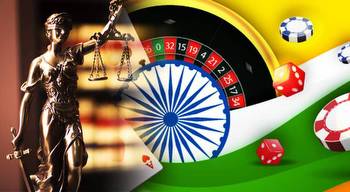Gambling and Hospitality Business Announce Massive Profits

Good news for a central gaming and hospitality company in India - Delta Corp announced an extraordinary gross revenue increase of 233% for the second quarter of 2022.
The business behemoth announced Rs 314,46 crore ($39.4million) in revenue between April and June in 2022 - that's up 16.5% from 2021 as the sector bounced back from a Covid-19-induced slumber in style.
There was significant growth in the company's profits, too - they reported Rs 77.38 crore ($9.7million) for the same period, significantly up from the losses of Rs 35.22 crore ($4.4million).
Delta Corp is one of the largest Indian corporations today, with two offshore casinos on its books. They run the Deltin Royale and Deltin JAQK - two famous establishments in India - plus lay claim to the country's only floating hotel and casino in Deltin Caravela.
Currently, gambling remains a grey area of Indian life. It operates under the umbrella of the Public Gambling Act 1867, also known as the Gambling Act.
Onlookers are expressing how the success of a leading gambling business further proves the significant benefits of regulating the industry, which has been dwelling in a grey area of the legal spectrum for so long.
What Are The Benefits of Industry Regulation?
First off, it’s been concluded that the public perception of betting and other forms of gambling are seen in mostly a positive light in India. In an “illgeal” industry worth over $150 billion a year, as much as $200 million changes hands during the bigger ODI games.
Many of these bettors are aware of how betting is completely legalised and regulated in much of western society. One only needs to examine the success of European regulatory bodies to see the wide-ranging benefits, from excellent product performance in a competitive sector to enhanced player safety under strict guidelines.
One recent study examines the importance of industry-wide regulation on and sums up its benefits.
An analysis from ENV Media, titled Offshore Gambling Licenses and Regulated Markets, surmised that the industry is at a tipping point.
The paper writes: "Gambling prohibition has largely shown to be unfeasible in the long run. Regulating an existing social practice (that has an expression as a business demand) requires clear rules and protection mechanisms for all actors involved."
Referencing an article by a recent publication, they list the following points as benefits to regulation: "The public interest has much to gain from taxes, consumer protection, and job creation; Sector transparency will stimulate stable investor interest; The ability to eliminate undesirable effects is enhanced by supervisory agencies, monitoring tools, and information campaigns."
The paper summarises its argument for gambling legalisation: "The goal of growing yet unregulated markets should be to achieve high consumer and public interest protection levels through modern legislation. Local jurisdiction licensing and legal channelling has proven as the most efficient means of achieving such ambitious long-term benefits."
What is the Potential for Growth for Gambling in India?
In a word, massive. Some estimates the gambling industry will be worth nearly $4 billion by 2024, with potential for further growth thanks to the development of modern technology and progressive policies on gambling in India.
The Indian Premier League, one of India’s most famous sporting exports, continues to go from strength to strength too - creating a safe environment for online cricket betting in India will only help legitimise the practice and bring in further corporate opportunities between the sector and franchises .
A new gambling bill is in the Lok Sabha for consideration, but some experts are critical of its scope, arguing that more must be done to distinguish gambling from other industries.
Felicia Wijkander, editor in chief at ENV Media, said: "In short, an online casino shouldn't be regulated in the same way as, for example, a gaming platform offering a first-person shooter game with optional real money features. These games are widely different, and trying to fit them under one umbrella is a recipe for disaster."




































